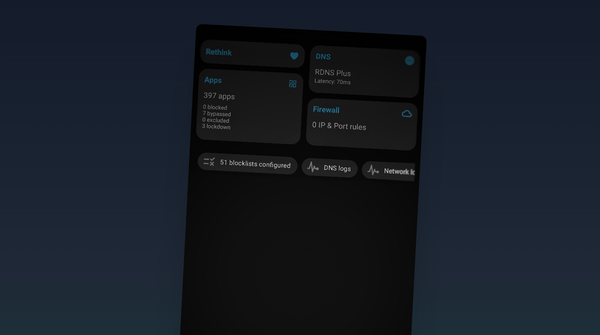Mastering UFW: The Simplest Way to Secure Your Linux System - How to Install and Use!
Mastering UFW: The Simplest Way to Secure Your Linux System
Table of Content
Firewalls can sound intimidating, but they don’t have to be. UFW (Uncomplicated Firewall) is designed to take the complexity out of firewall management. If you’re on Ubuntu or any Debian-based distribution, UFW is your best friend for keeping unwanted traffic away while allowing legitimate connections.
Whether you’re a beginner just getting started with Linux security or an advanced user looking to simplify your firewall rules, UFW has something for you.
Let’s dive into how to master UFW and keep your system secure.

What is UFW and Why Should You Use It?
UFW stands for Uncomplicated Firewall, and it lives up to its name. It’s a front-end for iptables, which is known for being powerful but complex. UFW simplifies common firewall tasks with an easy-to-understand command-line interface.
Why UFW?
- Simple Syntax: No need to memorize complex
iptablesrules. - IPv4 and IPv6 Support: Secure both types of network traffic.
- Beginner-Friendly: Perfect for new Linux users.
- Powerful Enough: Advanced users can still configure detailed rules.
UFW is installed by default on Ubuntu, but if it’s missing, you can easily install it.
Installing UFW
If UFW isn’t already installed, you can install it with a simple command.
On Ubuntu/Debian
sudo apt update
sudo apt install ufw
After installation, check the status:
sudo ufw status
By default, UFW is inactive. Let’s get it up and running!
Basic UFW Commands for Beginners
1. Enable and Disable UFW
To activate the firewall:
sudo ufw enable
To disable it:
sudo ufw disable
Note: Once enabled, UFW will automatically start on boot.
2. Allowing and Denying Traffic
You’ll often need to allow or block specific traffic. Here are some common examples.
Allow SSH (Port 22):
sudo ufw allow 22
Allow HTTP (Port 80):
sudo ufw allow 80
Allow HTTPS (Port 443):
sudo ufw allow 443
Deny a Specific Port (e.g., 23 for Telnet):
sudo ufw deny 23
3. Allowing by Service Name
UFW knows common services by name. For example, to allow SSH using its name instead of the port number:
sudo ufw allow ssh
This works for other services like HTTP and HTTPS too:
sudo ufw allow http
sudo ufw allow https
4. Check the Firewall Status
To see which rules are active:
sudo ufw status verbose
Advanced UFW Configuration
Let’s explore some advanced use-cases for those who want more control.
1. Allowing a Specific IP Address
If you want to allow traffic from a specific IP (e.g., 192.168.1.10):
sudo ufw allow from 192.168.1.10
2. Allowing IP Range for a Specific Port
Allow a range of IPs to access a specific port (e.g., 192.168.1.0/24 for SSH):
sudo ufw allow from 192.168.1.0/24 to any port 22
3. Denying Specific IP Addresses
To block traffic from a specific IP (e.g., 203.0.113.5):
sudo ufw deny from 203.0.113.5
4. Setting Default Policies
You can set default policies to allow or deny traffic. The safest configuration is to deny all incoming connections and allow all outgoing connections.
sudo ufw default deny incoming
sudo ufw default allow outgoing
5. Deleting Rules
If you need to delete a rule, first list the rules with numbers:
sudo ufw status numbered
Then delete the rule by its number (e.g., rule 3):
sudo ufw delete 3
Real-World Use Cases for UFW
1. Protecting a Web Server
If you’re running a web server, you might only need to allow HTTP, HTTPS, and SSH traffic:
sudo ufw allow http
sudo ufw allow https
sudo ufw allow ssh
sudo ufw enable
2. Locking Down a Database Server
For a database server that should only allow local access:
sudo ufw allow from 127.0.0.1 to any port 3306
sudo ufw enable
3. Securing a Personal Laptop
For a personal machine, allow common services like SSH and block everything else:
sudo ufw default deny incoming
sudo ufw default allow outgoing
sudo ufw allow ssh
sudo ufw enable
Troubleshooting UFW
Reset UFW:If things go really wrong, reset UFW to default settings:
sudo ufw reset
Firewall Blocking Too Much:Temporarily disable UFW to diagnose the issue:
sudo ufw disable
Check Logs:UFW logs are stored in /var/log/ufw.log.
sudo less /var/log/ufw.log
Final Thoughts
UFW makes firewall management on Linux simple and effective. Whether you’re a beginner or a seasoned sysadmin, UFW can save you time and effort while keeping your system secure.
With just a few commands, you can lock down your system and protect it from unwanted traffic. Try it out, and you’ll wonder why you ever thought firewalls were complicated.
Stay secure, stay uncomplicated! 🛡️













